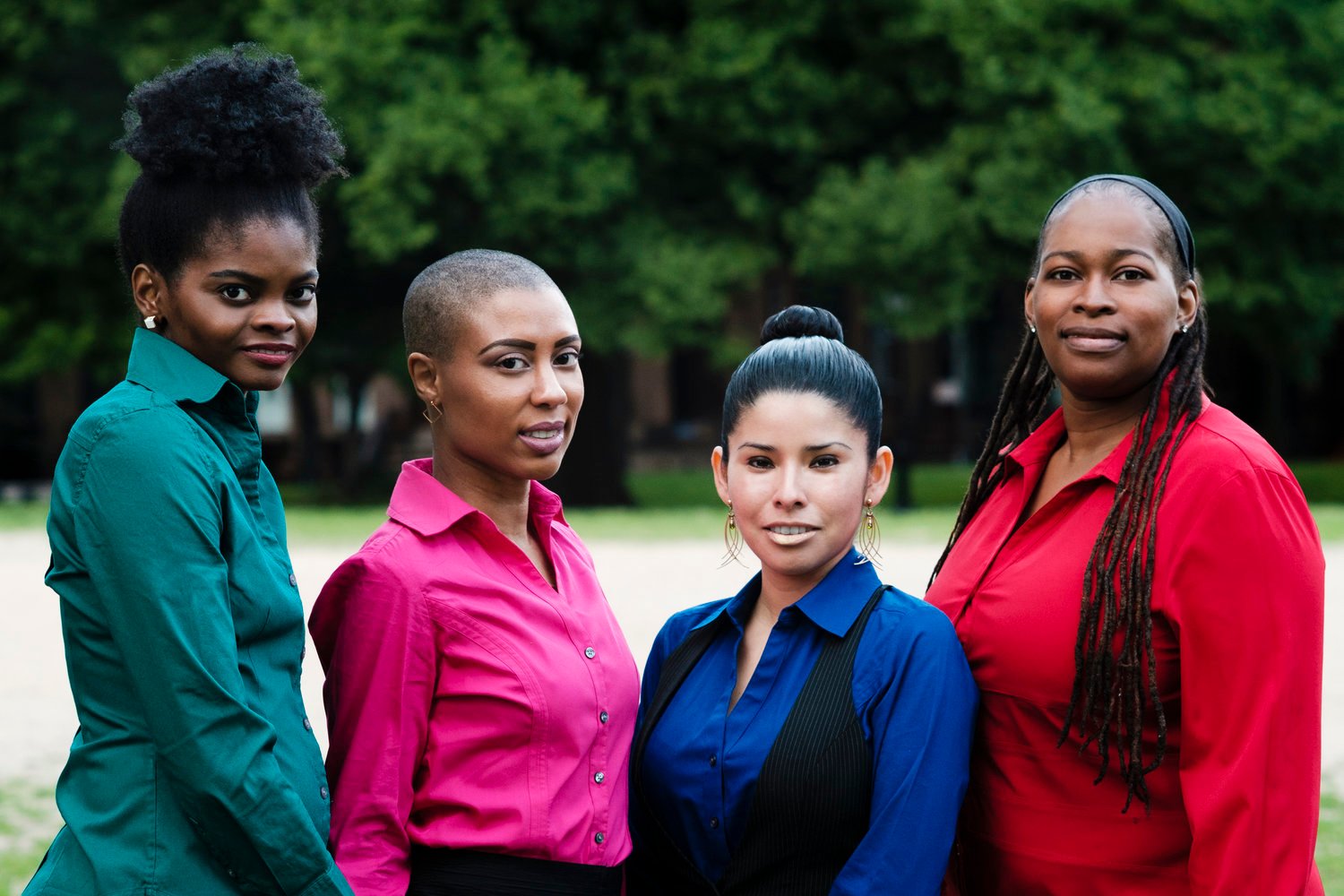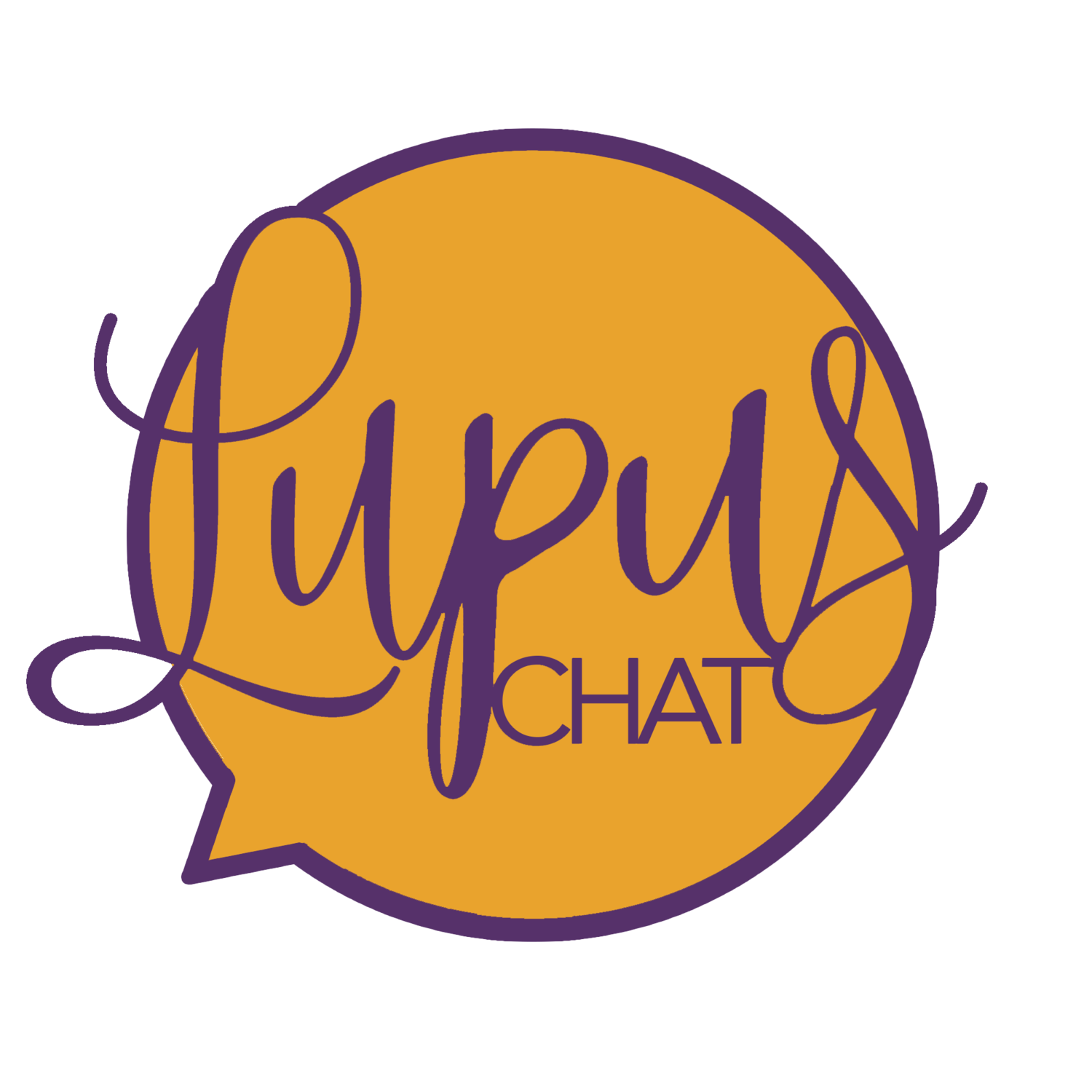
LupusChat Executive Board members Christele Felix, Tiffany Marie Peterson, Elizabeth SantaCruz and Carly Harrison.
Happy Lupus Awareness Month!
I had the pleasure of interviewing the LupusChat Executive Board. LupusChat is a global health organization based in New York City, founded in 2012 by Tiffany Marie Peterson. The mission of LupusChat is to "improve the quality of life for all those impacted by lupus, chronic, autoimmune, and rheumatic diseases." LupusChat hosts online Twitter chats bi-weekly on Sundays at 3:00 pm ET with discussions about health concerns and the significance they have on the lives of those living with Lupus.
- Tell me a little about yourself. How did you get involved in LupusChat?
Christele: My name is Christele, I was diagnosed with Lupus in 2007. After years of advocating for myself in one way or another, I joined the LupusChat team almost 10 years later. Late October 1026 was a great period for me. I was coming off of a long recovery from a serious flare, had started a new job that same week, and felt I had my spark back. I was honored to be invited to be part of a team that is patient-led and so focused on support for patients. This opportunity empowered me to take my advocacy to a new level. I’ve always been very outspoken and so I came in such enthusiasm and so many ideas. Tiffany has put together a good group that can exchange ideas and create really relatable content for our Lupus community. My role and my contribution enables LupusChat to curate conversations that us patients really needed to have.
Tiffany Marie: My name is Tiffany Marie and I was diagnosed with systemic lupus in 2010 & nephritis in 2015. I am the founder of LupusChat, which was established in May of 2012 with the purpose of providing a safe space where people living with lupus could find community regardless of where they are in the world. LupusChat amplifies the caregiver and patient voices within the healthcare sector & builds meaningful relationships that foster dynamic change between the Lupus community and healthcare professionals. I remember the overwhelming fear and isolation I experienced during my early diagnosis. I wanted to create something that would be a resource for those that shared similar experiences.
Elizabeth: My name is Elizabeth SantaCruz, my connection to Lupus is through my daughter Miah, she was diagnosed with this chronic illness four years ago. As a mom and caregiver, I decided to become an advocate because I want to build her a better world, a world of understanding and support.
Carly: I’m Carly and I live with several forms of Lupus and a few other autoimmune diseases. I was diagnosed in 2011 after a few years of having what appeared to be disconnected symptoms. A birthday trip to the beach led me to my diagnosis. I am a student of the sciences and it is from that perspective that I navigate my journey with chronic illness. I actually joined LupusChat several years ago as a community member and chat participant. At the time, I was just overcoming my years-long battle with the denial stage of living with chronic illness. For several months prior to finding the #LupusChat hashtag, I was interacting with others in the Lupus community through message boards and Facebook. The message boards were great for gathering information and asking questions but didn’t provide the feeling of community I was longing for. My experience with Facebook groups left much to be desired and became draining in many ways. It wasn’t until I stumbled onto the hashtag on Twitter during a chat one Sunday that I felt I found a community more tailored to my needs. A few years later I was invited to be a LupusChat Co-host. The rest is history.
- What are your goals, personally and professionally, for LupusChat?
Tiffany Marie: The LupusChat Executive Board is, as always, working towards our core goals which are, amplifying our community outreach, creating initiatives utilizing technology and community outreach to educate, encourage, and empower patients, caregivers, and healthcare professionals worldwide.
Christele: My goals and hopes in working with LupusChat are to continue growing our community and to make it possible so that more people living with chronic illness and their families can see this space as a source of support and information. I hope that every patient that we come into contact with and experiences what we do becomes empowered to thrive in their new normal.
Elizabeth: My goal is for children to learn about Lupus at an early age in a fun and friendly way. In 2016, I was honored to be invited to be part of the LupusChat family. This is an incredible and amazing online community that connects people all over the world who support each other.
Carly: My professional and personal goals for LupusChat are intertwined. Professionally they include working to further the mission of increasing health literacy, strengthening intra-community relationships, and providing real-time tangible resources for the Lupus and chronic illness communities; On a more personal level I seek to use my skill set and lived experiences to make these things a reality. I’m passionate about educating our community about different types of research and ways that they can participate. I also work hard to be a boon to our members in terms of providing data and resources they seek within the larger Lupus community and on a personal level, to assist in ways that impact their daily lives. I and my colleagues work very hard to design initiatives that serve the unmet needs of our community and my goal is that we are able to continue to do this on a larger scale.
- What is one thing you wish everyone knew about lupus?
Tiffany Marie: I wish that people would honor and respect the boundaries which are necessary for those living with lupus. I wish they knew that a person’s outward appearance doesn’t reflect how vigorously their body is being ravaged by this disease.
Christele: I wish people made an effort to understand what it takes out of us to live with this disease every day and what it takes to keep going despite it. More than just one day of fatigue or joint pain, it’s ongoing forever and ever. We may seem to be doing just fine, but it really feels like half of our lives is spent resting and recovering.
Carly: I wish that it was more widely known that living with Lupus changes you not just physically, but in every other way imaginable. The mental, emotional, and lifestyle changes necessary to navigate life with Lupus are far reaching.
LupusChat Exec Board: We think that if Lupus was more widely understood and more people knew the details of what it feels like to live with this disease, perhaps they'd have more empathy and offer less judgement. This will lead to a better quality of life for everyone involved.
- What do you think is the future of lupus?
We believe that the future of Lupus lies with people with Lupus leading the charge.
- Any parting wisdom for people interested in lupus advocacy?
Elizabeth: #LupusChat allows people to share their personal experiences and knowledge about Lupus and other chronic illnesses and emphasizes the importance of knowledge and patient empowerment.
Tiffany Marie: Your specific journey with lupus is uniquely your own. No one else has experienced lupus the same way you have. You have your own story, your own voice, it’s up to you to decide how you want to use it.
Christele: Each person’s journey through life, and through life with Lupus, is different. Our stories are valid and our experiences valuable. The moment you start sharing your story, or asking that your needs be respected, or demanding that your wellbeing be taken seriously, you are already an advocate.
Carly: Advocacy work looks different for everyone involved. What may feel comfortable for one person may not match the style of another. It is important to find the way to contribute the discourse that best suits you; if and only if you are ready. Existing in this world as someone living with Lupus in and of itself is a profoundly important act. And that alone, is a form of advocacy. Your story as a survivor is important.
For our readers would like to join the discussion, please follow @Lupus_Chat or use the hashtag #LupusChat on Twitter, or check out their website at https://www.lupuschat.org/
